powered by our community
Free educational materials to explore sustainability topics and solutions
The BioConnect kit sparks dynamic sustainability education by guiding 6th-8th graders through the innovation of nature-inspired solutions. Students explore how organisms in the Sonoran desert have adapted to extreme environments. The kit develops key innovation skills - systems thinking, critical observation, communication, and creative problem solving.
Presenters : Sara Aly El-Sayed, Leslie Bell
This interactive curriculum toolkit describes how to implement behavior change interventions to advance sustainability outcomes. Users progress through a series of modules that explain how to prepare, design, evaluate, and facilitate successful interventions. The toolkit can be used to support instructors to teach about these efforts and provide guidance for practitioners with their own projects.
Authors: Jordan King, Katja Brundiers, Krista O'Brien, Samantha Adamo, and Daniel Fischer
This toolkit describes the concept of relationality, relational approaches to learning, knowledge co-production, and the emotional and spiritual dimensions of learning. It teaches about relationality and how to teach using relationality, encouraging academic communities to build mutual relationships with learning in order to foster a sense of accountability.
Presenter: David Manuel-Navarrete, Brian Grant
This toolkit fosters a deeper understanding of equity, heat equity, and the principles of Justice, Equity, Diversity, Inclusion, and Access (JEDIA) in sustainability education. The material contributes to a livable, sustainable, and just future by promoting sustainability education that is meaningful, equitable, and participatory.
Presenter: Paul Coseo
School Participatory Budgeting (SPB) empowers students to “learn democracy by doing” by deciding how funds are used to improve their school communities and prepares young people to be active, informed, and engaged participants in civic life. The process builds student agency, confidence, communication, critical thinking and problem-solving skills.
Presenter: Tara Bartlett, Daniel Schugurensky
Turn it Around! Flashcards for Education Futures is a learning tool for adults, made by youth, to reimagine our approach to education, and our relationship with nature and the living world during this time of climate crisis. Usually, flashcards are designed by educators for students and children. This deck of flashcards is designed by youth for education policymakers, politicians, and teachers. By flipping who teaches who, this project is a reminder that everyone – and everything – must change.
Authors: Artists’ Literacies Institute, Adriene Jenik, Iveta Silova and Ann Nielsen
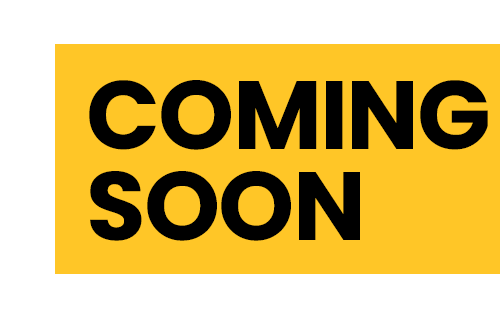
This toolkit helps create more collaboration and opportunities for holistic adaptation to climate challenges within cities. It enhances understanding of sustainability, emergency management, and resilience and how climate challenges can be mitigated through improving collaboration across these three areas in city governments.
Presenter: Susila Bhagavathula
This interactive curriculum toolkit describes how to implement mindful interactions with nature to create connections to the environment and intertwined ecosystems. The user will advance through various sections relating to nature mindfulness activities.
Author: Cyna Schuster
The BioConnect kit sparks dynamic sustainability education by guiding 6th-8th graders through the innovation of nature-inspired solutions. Comprehensive lesson plans lead students to explore how organisms in the Sonoran desert are adapted to extreme environments. And by examining these organisms students discover sustainable strategies that inspire their final design challenge. By introducing biomimicry methodology step-by-step, the BioConnect kit develops key innovation skills – systems thinking, critical observation, communication, and creative problem solving. These standards-aligned curricula open young minds to the world of sustainability through biomimicry.
This toolkit is supplied under CC–BY-NC-SA license.
The BioConnect kit sparks dynamic sustainability education by guiding 6th-8th graders through the innovation of nature-inspired solutions. Comprehensive lesson plans lead students to explore how organisms in the Sonoran desert are adapted to extreme environments. And by examining these organisms students discover sustainable strategies that inspire their final design challenge. By introducing biomimicry methodology step-by-step, the BioConnect kit develops key innovation skills – systems thinking, critical observation, communication, and creative problem solving. These standards-aligned curricula open young minds to the world of sustainability through biomimicry.
The objectives for users of the toolkit are to:
This kit allows educators to facilitate a classroom space which encourages students to be communicative, problem solving, and open minded. This can lead to the formation of individuals who recognise the importance of collaboration for sustainable solutions, especially when it comes to future innovation.
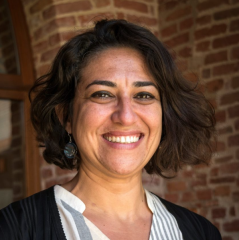
Sara El Sayed, The Biomimicry Center,
Leslie Bell, The Phoenix Zoo
Lily Urmann, The Biomimicry Institute
The BioConnect kit was developed for middle school grades 6,7 and 8 to connect teachers and students to nature, sustainability, and biomimicry through a week-long hands-on experience. The pedagogy and lesson plans were led by the Biomimicry Center with support from the Institute, and the outreach and continued education and training is provided by the Phoenix zoo.
The kit was developed with funding from Women and Philanthropy with the impetus of bringing biomimicry education through the Zoo’s teaching bus, but when the pandemic hit we pivoted, with the idea of a kit that could be borrowed and rotated between middle schools in Arizona. Alternatively, schools can print the lesson plans, 3D print the biomimetic models and order some of the artifacts that make up the kit.
The tool kit is meant to educate teachers and students about how biomimicry can be a tool to learn about nature, understand the innovation process, and innovate solutions for sustainability challenges while connecting to science and environmental standards for middle school curricula.
Our outreach through the Phoenix Zoo has included a training program for middle school teachers, consisting of an online training and an in-person 6-hour training. The training is free for teachers to attend, and a stipend is provided to attend the 6-hour training. The training intends to reach out to under-resourced schools and rural schools who might need extra support
in learning how to use the kit and implementing it into their school programs. We are also working with Indigenous teachers to make the kits more culturally relevant to Indigenous students.
The material is meant to educate middle school students and teachers within the formal educational curriculum, about local sustainability challenges (e.g. water scarcity, water quality, heat island effect), and finding ways to solve these challenges inspired by Nature’s genius.
For teachers who wish to utilize the BioConnect kit in their classrooms, it is important to understand the layout of the curricula. Each curriculum is designed for either 6th, 7th, or 8th grade and is designed to follow a week-long lesson-plan which is aligned with state and NGSS standards. Throughout the week, teachers will follow a 60 minute daily lesson plan which progresses from introducing biomimicry, to exploring specific ecosystems, to examining desert organisms, to innovating designs. Each BioConnect kit comes equipped with a content summary, kit item list, detailed lesson plans, print materials, natural artifacts, and 3D printed models which assist in the easy implementation of the kit to your classroom space.
In order to ensure student success with the BioConnect kit, it is important to recognise that biomimicry can be a very new and abstract concept to both teachers and students. While biomimicry may seem complex at first, don’t be intimidated. Dive into the activities with an open mind, collaborate with your peers, and don’t forget to have fun!
The BioConnect toolkit can be accessed on the Phoenix Zoo website through their Curriculum for the Classroom page. On this page, educators can add themselves to the interest list to obtain a kit for their classrooms as well as get information on BioConnect kit teacher workshops that are being held at the Phoenix Zoo. The kit is intended for use solely in middle school classrooms and at the moment, the full physical kit is only available through the Phoenix Zoo.
This toolkit is supplied under CC–BY-NC-SA license.

This work is licensed under a Creative Commons Attribution-NonCommercial-ShareAlike 4.0 International License.
This interactive curriculum toolkit describes how to implement behavior change interventions to advance sustainability outcomes. Users progress through a series of modules (with resources, examples, activities, and insights) that explain how to prepare, design, evaluate, and facilitate successful intervention projects. The toolkit can be used to support instructors to teach about these efforts and provide guidance for practitioners with their own projects.
This toolkit is supplied under CC–BY-NC-SA license.
This interactive curriculum toolkit describes how to implement behavior change interventions to advance sustainability outcomes. Users progress through a series of modules (with resources, examples, activities, and insights) that explain how to prepare, design, evaluate, and facilitate successful intervention projects. The toolkit can be used to support instructors to teach about these efforts and provide guidance for practitioners with their own projects.
The objectives for users of the toolkit are to:
SDG 4: Quality Education
SDG 11: Sustainable Cities and Communities
SDG 12: Responsible Consumption and Production
SDG 13: Climate Action
The toolkit helps to facilitate participatory decision-making processes that can lead to more equitable and inclusive sustainability solutions, particularly related to consumption behaviors.

My name is Jordan King and I am a PhD Candidate at Arizona State University in the School of Sustainability and the College of Global Futures. I am a founding member of RCE Greater Phoenix and have worked in a variety of areas related to sustainability and education, including teacher education, higher education, and community outreach.
The Sustainable Behavior Change Toolkit was developed through a collaborative, multifaceted effort that involved students, faculty, and staff at ASU. Beyond myself, these included Dr. Daniel Fischer, Dr. Katja Brundiers, Krista O’Brien, and Samantha Adamo, as well as students Shea Alevy, Jacob Ivy, and Courtney Talbot. The project was supported by funding from the Swette Center for Sustainable Food Systems and the ASU Sustainability Initiatives Revolving Fund Grant in partnership with University Sustainability Practices and the Zero Waste team. The materials were originally piloted as part of a class in Spring 2020 and adapted for use in a Fall 2021 class before being further developed for use by faculty, staff, and students at ASU and beyond.
Our goals in developing the toolkit were to create a practical resource that can be used in developing actionable solutions to create a more sustainable ASU campus and community, while creating applied learning experiences.
We hope that the toolkit can support instructors to implement forms of intervention research into their teaching across a range of disciplines (sustainability, psychology, health, etc.), in addition to providing tools for campus operational staff to implement projects to promote sustainability outcomes. Having resources like the Sustainable Behavior Change toolkit is essential to creating a stronger sustainability culture on campus and beyond, as well as a learning community that can collaborate on iteratively designing, implementing, and evaluating solutions to advance more sustainable consumption.
Through these objectives, we envision the toolkit as a contributing strategy to the vision and mission of RCE Greater Phoenix by mobilizing education and action through inclusive approaches to multi-stakeholder collaboration that create more sustainable campuses, cities, and communities.
For instructors who wish to use the toolkit to teach others about behavior change interventions for sustainable consumption, be aware that the modules should be progressed through in sequential order (though revisiting modules is encouraged). Each module contains resources, examples, suggested activities, and insights from previous instructors, practitioners, and learners on ways to engage and use what has been learned.
Progressing through the modules in sequential order is most effective, though revisiting modules is encouraged. As you proceed, it can be helpful to discuss emerging insights with collaborators to consider practical applications to begin designing your own intervention.
The toolkit can be accessed at the link above. In addition to describing the intervention development process, the curriculum also provides some background information on key concepts in sustainability. It is intended primarily for a higher education audience, but has also been used with K-12 teachers. ASU-based faculty and staff (and potentially students) can enroll in a Canvas-version of the curriculum through University Sustainability Practices to receive a professional development certificate of completion.
This toolkit is supplied under CC–BY-NC-SA license.

This work is licensed under a Creative Commons Attribution-NonCommercial-ShareAlike 4.0 International License.
This interactive curriculum toolkit describes the concept of relationality, relational approaches to learning, knowledge co-production, and the emotional and spiritual dimensions of learning while providing several activities and lessons pertaining to these concepts. This toolkit can be used to support instructors to teach about relationality and to teach using relationality as guidance with their own subjects. Encouraging academic communities to build mutual relationships with learning in order to foster a sense of accountability in educational settings is the foundation of this toolkit.
This toolkit is supplied under CC–BY-NC-SA license.
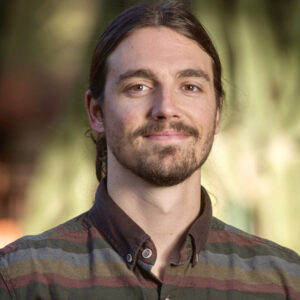 My name is Brian Grant and I am a PhD Candidate at Arizona State University in the School of Sustainability and the College of Global Futures. .
My name is Brian Grant and I am a PhD Candidate at Arizona State University in the School of Sustainability and the College of Global Futures. .
 My name is David Manuel-Navarrete and I am an Associate Professor at Arizona State University in the School of Sustainability and the College of Global Futures.
My name is David Manuel-Navarrete and I am an Associate Professor at Arizona State University in the School of Sustainability and the College of Global Futures.
This toolkit is for instructors who want to guide their teaching through the lens of relationality to encourage students to be active members in their learning process – not simply silent spectators. The modules contain information and resources on relationality as well as several activities geared toward unearthing and analyzing how learners are deeply connected to each other and global activities and concepts.
It is important to remind learners that they are part of the creative learning process, and they should feel encouraged to continuously relate to and contribute to the subject matter. It may be helpful to make mental or physical notes of the many connections and relationships learners uncover, especially those that are surprising or unexpected.
This toolkit can be accessed using the link above. The toolkit’s activities can be tailored to many different age groups, while the relationality-based resources and information itself may be better suited for high school-aged learners or older. However, all educators are encouraged to use the concepts, resources, and activities to guide their instruction of any grade-level.
This toolkit is supplied under CC–BY-NC-SA license.

This work is licensed under a Creative Commons Attribution-NonCommercial-ShareAlike 4.0 International License.
Website coming soon
Sustainability Education Experiences
Crafting Sustainability Education Experiences: A Five-Step Guide
This toolkit is supplied under CC–BY-NC-SA license.
Using critical and humanizing pedagogies, participants will design their own sustainability education professional development workshop in order to build unity, co-create knowledge, share leadership, and address context-specific concerns in their school or community.
This toolkit has the capability of addressing many other SDGs, depending on the goals and objectives outlined by the user
The toolkit is underpinned by critical and humanizing pedagogies, which are teaching practices that encourage learners to question systems of power and oppression and take action for social action.
Molly Cashion, EdD Candidate, Mary Lou Fulton Teachers College. Senior Program Manager, Sustainability Teachers’ Academies
Bridget Rhee, Student, School of Sustainability
While sustainability has become a buzzword, there are still many opportunities to dive deeper into the concepts and goals of the sustainability science field. We created this toolkit for educators (and aspiring educators) that want to expand their professional networks by creating workshops and professional development experiences for their peers.
Using critical and humanizing pedagogies, participants will design their own sustainability education professional development workshop in order to build unity, co-create knowledge, share leadership, and address context-specific concerns in their school or community.
Critical and humanizing pedagogies are teaching practices that encourage learners to question systems of power and oppression and take action for social change. The design, content, and activities that underpin the toolkit seek to align with Salazar’s (2013) five tenets for humanizing pedagogy:
This toolkit contributes to the mission and vision of RCE Greater Phoenix by providing resources and materials for educators and learners to co-create sustainability education experiences by contributing quality education.
This resource is for anyone who wants to create a sustainability education workshop. The website will take you through the five major steps for creating a workshop:
The website outlines best practices, contains external resources, and templates to guide you through the process of creating a sustainability education workshop.
This toolkit can be used by anyone for any audience! While some of the concepts are more complex, teachers can use the structures and templates to help students create their own workshops.
This toolkit is supplied under CC–BY-NC-SA license.

This work is licensed under a Creative Commons Attribution-NonCommercial-ShareAlike 4.0 International License.
Website coming soon
The overall goals of the equity training modules are to foster a deeper understanding of equity, heat equity, and the principles of Justice, Equity, Diversity, Inclusion, and Access (JEDIA) within the context of sustainability education. The material aims to contribute to a livable, sustainable, and just future in the region by promoting sustainability education that is meaningful, equitable, and participatory.
This toolkit is supplied under CC–BY-NC-SA license.
Module 3.1 Inherited inequities: cool places + hotspots https://youtu.be/leTuQRSf_a0
Module 3.2 Vicious Cycles of Heat Inequity: https://youtu.be/JUa-j1I3wp8
Suggested reading:
Jackson, M. R. (2021). Addressing Inequity Through Public Health, Community Development, Arts, and Culture: Confluence of Fields and the Opportunity to Reframe, Retool, and Repair. Health promotion practice, 22(1_suppl), 141S-146S.
Coseo, P., & Hamstead, Z. (2023). Just, nature-based solutions as critical urban infrastructure for cooling and cleaning airsheds. Nature-Based Solutions for Cities, 106-146.
Coseo, P. (2019). An Urban Climate Design Framework for More Thermally-Comfortable and Equitable Communities. Landscape Research Record. OUTSTANDING PAPER, 374.
Hamstead, Z., & Coseo, P. (2019). Critical heat studies: making meaning of heat for management in the 21st century—special issue of the journal of extreme events dedicated to heat-as-hazard. Journal of Extreme Events, 6(03n04), 2003001.
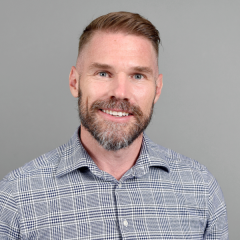 My name is Paul J. Coseo, PhD, PLA, and I am the Program Head and Associate Professor of Landscape Architecture + Urban Design + Environmental Design, The Design School, Arizona State University. I investigate how landscape architecture, planning, and design strategies can reduce extreme urban microclimates for more thermally-comfortable and equitable communities. Extreme urban microclimatic conditions can disrupt energy systems, water quality and availability, residents’ routines and incomes, degrade quality of life, threaten residents’ health and well-being, and create challenges for urban sustainability and resilience. Working at the intersection of meteorology, landscape architecture, and urban planning, I developed a focus area in landscape architecture called Urban Climate Design, which integrates 1) urban climatology, 2) urban ecology, 3) thermal equity, and 4) participatory research and design processes to comprehensively reshape neighborhood atmospheres.
My name is Paul J. Coseo, PhD, PLA, and I am the Program Head and Associate Professor of Landscape Architecture + Urban Design + Environmental Design, The Design School, Arizona State University. I investigate how landscape architecture, planning, and design strategies can reduce extreme urban microclimates for more thermally-comfortable and equitable communities. Extreme urban microclimatic conditions can disrupt energy systems, water quality and availability, residents’ routines and incomes, degrade quality of life, threaten residents’ health and well-being, and create challenges for urban sustainability and resilience. Working at the intersection of meteorology, landscape architecture, and urban planning, I developed a focus area in landscape architecture called Urban Climate Design, which integrates 1) urban climatology, 2) urban ecology, 3) thermal equity, and 4) participatory research and design processes to comprehensively reshape neighborhood atmospheres.
The Place-based Equity Training for Sustainable Urban Development Toolkit were developed as a key component of the “Cool Kids, Cool Places, Cool Futures” project, an initiative spearheaded by the City of Tempe Office of Sustainability and Resilience in collaboration with the ASU Indigenous Design Collaborative and the Studio for Creativity, Place and Equitable Communities.
In particular, the videos were developed by a core equity team, which includes Selina Martinez, Kenneth Shirley, Paul Coseo, Wanda Dalla Costa, Maria Rosario Jackson, and Braden Kay with contributions from Katja Brundiers, Grace Logan, Eleo Paul, and Amanda Trakas. The purpose of creating these materials was to provide a foundational understanding of racial and heat equity within the context of sustainability education. The materials provide advice on how to amplify voices and empower individuals to better care for their communities’ equity and justice culture through a lens of heat. By acknowledging historical inequities and fostering a justice-oriented mindset, the materials provide learners lessons to co-create visions and action steps that contribute to a more livable, sustainable, and just future. The material is designed to be a living resource, encouraging ongoing contributions and revisions to ensure it remains relevant and aligned with community values.
We intended the materials to help learners achieve an entry level understanding of racial and heat equity, empowering them to create sustainable, just, and inclusive communities through informed decision-making and collaborative action.
We activate Justice, Equity, Diversity, and Access principles through the design of the learning material themselves as these principles are embedded into the content and pedagogy, fostering inclusive dialogue, and equipping learners with the tools to address systemic inequities and promote sustainable, equitable communities.
The equity training materials contribute to the mission and vision of RCE Greater Phoenix by promoting sustainability education that is deeply intertwined with justice, equity, diversity, and access principles, thereby advancing the Sustainable Development Goals and fostering collaborative efforts to create a more equitable and sustainable future in the region.
This toolkit is supplied under CC–BY-NC-SA license.

This work is licensed under a Creative Commons Attribution-NonCommercial-ShareAlike 4.0 International License.
School Participatory Budgeting (SPB) is an innovative civic learning model designed to build student agency, collaboration, and critical thinking skills while creating equitable opportunities for students to authentically contribute to their communities and civic life. SPB is, at the same time, a tool for citizenship education, a tool for civic engagement, and a tool for school democracy. The SPB process stems from the widely adopted municipal Participatory Budgeting (PB) model that was born in Porto Alegre, Brazil in 1989.
This toolkit is supplied under CC–BY-NC-SA license.
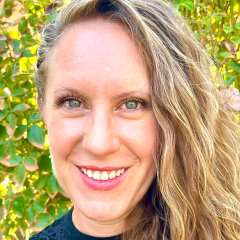
My name is Tara Bartlett and I am a Senior Research Analyst for Arizona State University’s Participatory Governance Initiative
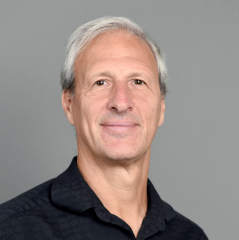
My name is Daniel Schugurensky and I am the founding director of the Participatory Governance Initiative at Arizona State University
School Participatory Budgeting (SPB) is an innovative civic learning model designed to build student agency, collaboration, and critical thinking skills while creating equitable opportunities for students to authentically contribute to their communities and civic life. SPB is, at the same time, a tool for citizenship education, a tool for civic engagement, and a tool for school democracy. The SPB process stems from the widely adopted municipal Participatory Budgeting (PB) model that was born in Porto Alegre, Brazil in 1989.
The School Participatory Budgeting (SPB) process can be used to green a school community in the following ways:
This toolkit is supplied under CC–BY-NC-SA license.

This work is licensed under a Creative Commons Attribution-NonCommercial-ShareAlike 4.0 International License.
“Turn it Around: Flashcards for Climate Futures” was conceived as a transformative learning tool to reimagine our educational approach amidst the looming climate crisis. Crafted by youth and for the wider educational community, the initiative stemmed from a collective vision to challenge traditional educational paradigms. Unlike conventional flashcards aimed at students, this project sought to invert the dynamic by harnessing the creative power of youth to influence educators, policymakers, and politicians. The intent was clear: to foster a radical rethinking of our educational systems, urging a profound shift in perspective and action.
This toolkit is supplied under CC–BY-NC-SA license.
The genesis of the “Turn It Around: Flashcards for Climate Futures” toolkit involved a vast and diverse network of contributors, including esteemed youth artists, activists, educators, researchers, policymakers, and a multitude of organizational partners. This collaboration was instrumental in shaping the toolkit’s content and overarching vision.
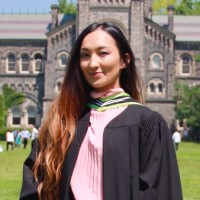
As a PhD student in Educational Policy and Evaluation at Mary Lou Fulton Teachers College ASU, I, Dilraba Anayatova, had the privilege of being deeply involved in this transformative project. I with my colleagues, analyzed the wealth of submitted artworks, meticulously categorizing and exploring submissions based on colors, age demographics, and geographic locations.
Immersing myself in the artwork, I sought to understand the profound emotional and contextual nuances embedded within the submissions. This analysis led to the development of a comprehensive policy report, an interactive website, and the physical deck itself. Together, we orchestrated marches, art exhibitions, presentations, and workshops to disseminate the toolkit’s content and spark meaningful conversations.
Leveraging my passion for environmental and rural education, I with my colleagues applied the flashcards to diverse settings, like tarot reading, nature walking, meditation etc. Moreover, we developed tailored educational resources designed specifically for teachers, harnessing creative interpretations of the flashcards.
Throughout this journey, under the mentorship of Dr. Iveta Silova, my contributions were aimed at enriching the project outcomes and advancing the mission of fostering ecologically conscious education futures. The collaborative efforts of everyone involved, including youth artists and partners, greatly shaped the success of this initiative.
“Turn It Around: Flashcards for Climate Futures” was conceived as a year-long youth-led climate education initiative, initially established at Arizona State University and generously supported by the Open Society Foundations and UNESCO’s Futures of Education Initiative. Its focus was to address education’s pivotal role in addressing the environmental crisis and our collective inability to envisage alternative solutions.
The project stemmed from a realization that despite efforts to promote education as a vehicle for sustainable living (e.g., Sustainable Development Goal 4 or UN’s Education for Sustainable Development initiative), educational systems persistently reinforced human exceptionalism and economic growth over environmental sustainability. Fossil-fuel-dependent, profit-driven activities had drastically escalated global warming, pushing the planet toward irreversible tipping points.
Merging visions and voices of youth artists and leaders globally, the project aims to radically reimagine education as part of he solution to the climate crisis. The project refused to accept human exceptionalism and neoliberal individualism as the sole survival vision on a compromised Earth. Instead, it aimed to amplify marginalized voices, considering intergenerational, cross-cultural, and multispecies interdependence and justice.
The project’s call for contributions circulated through social media, inviting children and youth to share their art and written responses on various prompts related to climate education, sustainability, and their visions for a livable future on Earth. Overwhelmed by the response, the initiative received over 1000 submissions from 60 countries and five continents, with a significant disproportion in submissions from the Global South compared to their contribution to historical CO2 emissions.
The “Turn It Around: Flashcards for Climate Futures” toolkit aspires to serve as a catalyst for transformative change in climate education. It seeks to engage policymakers, educators, and communities worldwide in reshaping educational paradigms toward ecological justice and sustainability.
This toolkit aims to transcend conventional educational models by offering a multifaceted approach that merges socially engaged art with factual scientific insights. By harnessing the power of artistic expression, it endeavors to inspire immediate action among policymakers while laying the groundwork for long-term policy planning that acknowledges intergenerational, cross-cultural, and multispecies interdependence and justice.
Central to its objectives is the integration of youth voices and perspectives from diverse global backgrounds, underscoring the urgency and depth of the climate crisis. The toolkit seeks to challenge traditional hierarchies by amplifying voices typically excluded from global climate conversations, thereby fostering a more inclusive and representative dialogue.
Moreover, the toolkit aims to provoke critical thinking and paradigm shifts, challenging the prevalent belief in human exceptionalism and individualism. It endeavors to dismantle outdated educational structures that prioritize economic growth over environmental sustainability. Through the use of visually stimulating flashcards and thought-provoking content, it aims to engage audiences in reimagining education as an integral part of resolving the climate crisis.
Ultimately, the toolkit aspires to trigger a series of transformative turns in educational systems, encouraging a shift towards pedagogies that honor interdependence, reciprocity with nature, and holistic ecological community-building. It seeks to galvanize global audiences into adopting an approach that recognizes the intricate interconnections between humanity and the planet, fostering a collective responsibility for a sustainable future.
As a policy maker, you have a critical role in shaping educational policies. This toolkit offers insights into alternative educational paradigms and encourages considering innovative approaches in curriculum development.
For activists, this toolkit serves as a powerful advocacy tool. It provides compelling visual narratives and prompts that can be used to raise awareness about climate change, environmental sustainability, and the need for educational reform.
Teachers can integrate flashcards into their teaching methodologies to foster critical thinking and environmental awareness among students. This toolkit offers diverse and creative teaching materials that can be adapted across various subjects and age groups. It encourages educators to facilitate discussions, inspire curiosity, and promote a deeper understanding of the climate crisis within their classrooms.
Researchers have the opportunity to explore the impact and efficacy of these flashcards in shaping environmental consciousness and educational paradigms. They can conduct studies to assess the toolkit’s effectiveness in stimulating critical thinking, promoting sustainability competencies, and influencing behavioral changes in learners. The toolkit provides rich material for qualitative and quantitative analysis to advance research in environmental education.
Individuals engaged in education, climate advocacy, or research can utilize this toolkit as a transformative resource. It offers a unique perspective on the intersection of education and climate change, inspiring fresh thinking and action. By engaging with the flashcards, users can contribute to the collective effort of redefining education for a sustainable future. Whether in formal educational settings, advocacy campaigns, or scholarly pursuits, this toolkit serves as a catalyst for change.
This toolkit is supplied under CC–BY-NC-SA license.

This work is licensed under a Creative Commons Attribution-NonCommercial-ShareAlike 4.0 International License.
This course comprises a series of trainings to help practitioners create more collaboration and opportunities for holistic adaptation to climate challenges within cities. It is designed to enhance understanding of concepts such as sustainability, emergency management, and resilience and how climate change adaptation strategies in cities can be better leveraged as well through improving collaboration across these three areas in city governments.
This toolkit is supplied under CC–BY-NC-SA license.
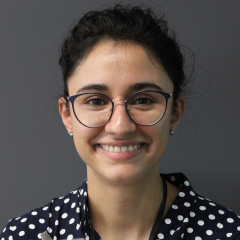
My name is Susila Bhagavathula. I am a Ph.D. student in sustainability at Arizona State University’s School of Sustainability. I’m interested in the intersection of sustainability, emergency management, resilience, capacity building, and governance related to heat.
I created this toolkit as part of my Master’s thesis to help practitioners, particularly people in city governments, coordinate and integrate their work in sustainability, resilience, and emergency management. Beyond myself, the development team included Dr. Katja Brundiers, Prof. Dr. Michael Stauffacher, and Dr. Braden Kay, who helped to develop the introduction and wrap-up meetings.
The trainings and materials that were used as part of this toolkit were developed by different people and organizations. The City of Tempe Fire and Medical Rescue team designed the first training as an Emergency Operations Center Annual Exercise to prepare the city for cyber-attacks. A kind thank you to Darrell Duty and Andrea Glass for letting us use the exercise.
Dr. Lauren Withycombe Keeler, at Arizona State University, developed the second game, Future Shocks and City Resilience. A kind thank you to her for letting us use this game.
The third game is called Game of Heat and was developed by the Urban Sustainability Directors Network, who kindly allowed us to use the game for the sake of this toolkit.
The toolkit was developed for anyone interested in creating more collaboration and more opportunities for adaptation to climate change within cities. It is addressed to members of city staff or leadership, community members, students, or anyone who is part of an organization in which they want to see more collaboration.
The toolkit was designed to foster connections and help learners understand different perspectives, roles, and ways of knowing and being. The hope is that this toolkit hereby contributes to more justice, equity, diversity, inclusion, and access, whether through projects that are developed as a result of this training series or in the personal lives of those working in city governments. Additionally, the toolkit is designed to convey a deeper understanding of the sustainability, emergency management, and resilience concepts through so-called “serious games,” a game-based approach meant to convey information for educational purposes (not just entertainment).
People who developed the training series:
Susila Bhagavathula, ASU School of Sustainability
Dr. Katja Brundiers, ASU School of Sustainability
Dr. Braden Kay, formerly Sustainability Director at the City of Tempe
Kind thank you for letting us use the games and training:
Darrell Duty, City of Tempe Fire Medical Rescue
Andrea Glass, City of Tempe Fire Medical Rescue
Dr. Lauren Withycombe Keeler, ASU School of Future of Innovation in Society
USDN – Urban Sustainability Directors Network
Works cited:
Baja, K. (2018). USDN Game of Heat: Toolkit and Resources. Urban Sustainability Directors Network. Accessed online at https://www.usdn.org/uploads/
Bhagavathula, S., Brundiers, K., Stauffacher, M., & Kay, B. (2021). Fostering collaboration in city governments’ sustainability, emergency management and resilience work through competency-based capacity building. International Journal of Disaster Risk Reduction, 63, 102408. https://doi.org/10.1016/j.
Keeler, L. W., Gabriele, A., Kay, B. R., & Wiek, A. (2017). Future Shocks and City Resilience: Building Organizational Capacity for Resilience and Sustainability through Game Play and Ways of Thinking. Sustainability: The Journal of Record, 10(5), 282–292. https://doi.org/10.1089/sus.
The trainings were designed to be facilitated by people interested in creating collaboration and to coordinate and integrate their work in sustainability, resilience, and emergency management. Each training module has detailed instructions for leading the training oneself, including handbooks and worksheets. All game cards and materials will be downloadable. The content should be tailored to the specific city and context where the trainings will be held. When facilitating, it is important to create a positive, open and friendly learning environment. Collaboration is built on trust, and instructors are encouraged to see their role as one of facilitating openness beyond pure content. The hope is that the gameplay will create a sense of connection and fun as well
This toolkit was developed for anyone interested in creating more collaboration and more opportunities for adaptation to climate change within cities. It’s geared towards members of city staff or leadership, community members, students, or anyone who is part of an organization in which they want to see more collaboration.
Learners can go through the modules sequentially, as indicated on the website, and revisit certain trainings and modules as often as needed for full comprehension. Additional trainings will be made available and linked as a resource in case learners want to focus on one topic over another. This flexibility ensures that for different climate challenges, a training will be made available to collaborate on. The goal is to start the collaboration process. However, collaboration is a constant effort that goes beyond just participating in a training series.
The toolkit can be accessed at the link above. In addition to describing the training sequence overall, the modules provide a deeper explanation of each training. Before sharing it with others, the licensing information should be considered.
This toolkit is supplied under CC–BY-NC-SA license.

This work is licensed under a Creative Commons Attribution-NonCommercial-ShareAlike 4.0 International License.
This interactive curriculum toolkit describes how to implement mindful interactions with nature to create connections to the environment and intertwined ecosystems. The user will advance through various sections relating to nature mindfulness activities.
This toolkit is supplied under CC–BY-NC-SA license.
My name is Cyna Schuster and I am an EdD graduate from Arizona State University. I have worked in various areas of environmental sustainability education, including early childhood education and higher education. I am the co-advisor for the Sustainability Club, an ASU student organization on the Tempe campus. My primary research interest is in the area of environmental Education, nature connectedness, and mindfulness.
The Cultivating Mindfulness Connections Toolkit was developed as a collective collaboration that included ASU faculty and students. Faculty member Dr. Molina Walters and ASU student Taina Rodriguez were actively involved in this project.
The primary goals of developing the toolkit were to utilize tools and resources to cultivate a mindful connection with the environment.
The purpose of the toolkit is to educate the public about the importance of implementing mindful connections with nature. Developing mindful connections can alter the user’s perspective on their environment, resulting in the user producing sustainable outcomes. The toolkit can be used by any individual interested in creating an intimate connection with nature. It has been designed
to accommodate each user’s needs.
We aim for the toolkit to support traditional and nontraditional educators in creating and sustaining a mindful connection with their environment. This intimate relationship will contribute to the user developing a sense of place and environmental stewardship. The toolkit will make the user more self-aware, environmentally aware, and emotionally aware to care for the environment.
For traditional and nontraditional educators who wish to use the toolkit to teach others about developing a mindful connection with the environment. The user of the toolkit is encouraged to explore the content and activities. The toolkit contains research, examples, and activities.
Advancing through the modules in sequential order is highly recommended. The activity modules should be visited as it will apply concepts taught in previous modules. As you progress through the modules, having discussions with your peers may be helpful to develop sustainable solutions..
The toolkit can be accessed at the link above. The curriculum provides background information on the significance of experiencing nature. It also provides activities for all ages and accommodations as needed. Traditional and nontraditional educators can use the toolkit to educate themselves or the community.
This toolkit is supplied under CC–BY-NC-SA license.

This work is licensed under a Creative Commons Attribution-NonCommercial-ShareAlike 4.0 International License.